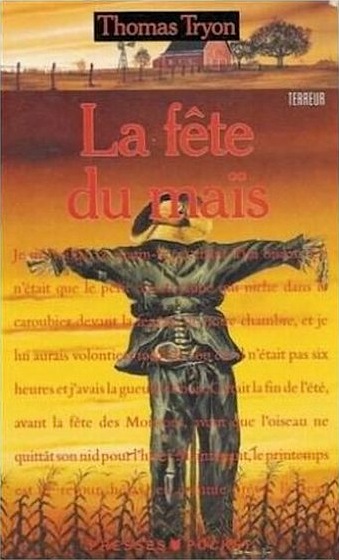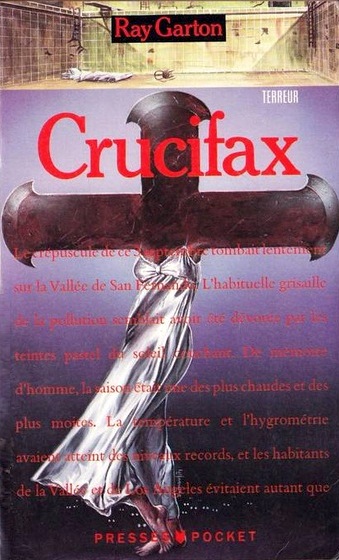First up are some Graham Mastertons, Picture of Evil, Wells of Hell, and the first two Manitou titles. Check out American editions here. I love our petit homme!
Next up, mon cheries, are the titles that comprise Anne Rice's monumental original trilogy known as The Vampire Chronicles. I haven't read these three novels in almost 30 years, but man did I dig them back then.
A couple James Herberts, The Survivor and The Fog, the latter of which is one of my favorite covers here; that sickly yellowish haze is c’est parfait.
Ooh, how about Thomas Tryon's two early '70s powerhouses? J'adore the skeleton poking out of that scarecrow's pants...
Nightwing was an early bestseller from Martin Cruz-Smith, an author more known for his espionage thrillers and such than horror fiction.
Two of Ray Garton's perhaps most (in)famous novels, one which was comme ci comme ça, while the other was magnifique!
























